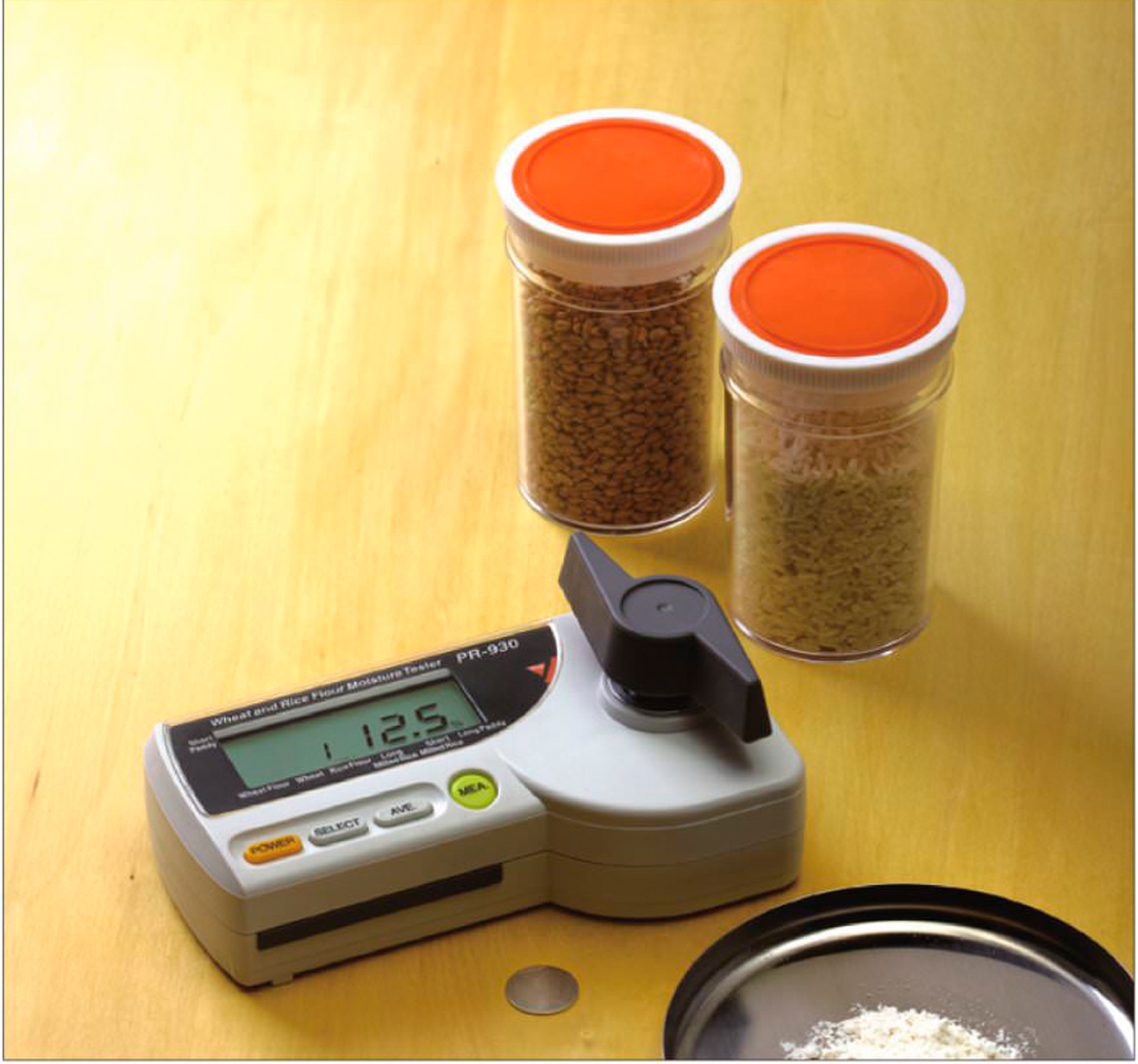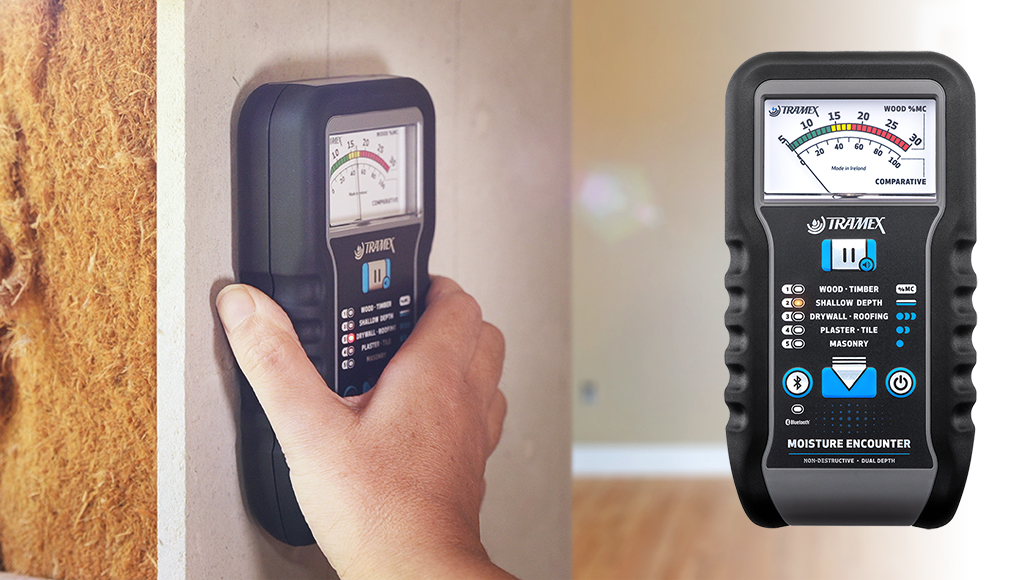Moisture Meter Purchasing Guide: What to Search for in High-Quality Instruments
Moisture Meter Purchasing Guide: What to Search for in High-Quality Instruments
Blog Article
The Ultimate Overview to Dampness Meters: A Comprehensive Introduction and How They Can Conserve You Cash
Moisture meters offer as indispensable tools in identifying and keeping track of moisture web content in materials, helping in stopping costly damages and making sure the top quality of products. Understanding the nuances of various kinds of wetness meters, their applications, and the possible cost-saving benefits they provide can be a game-changer for services and specialists alike.
Sorts Of Dampness Meters
One common kind is the pin-type dampness meter, which gauges the electric resistance in between 2 pins placed right into a product. Pinless dampness meters, on the various other hand, use electromagnetic sensor plates to scan a larger location without triggering damages to the material's surface.

Infrared moisture meters gauge the thermal buildings of a product to determine its wetness web content non-invasively, making them helpful for applications where pin or pinless meters might not be ideal. Comprehending the various kinds of moisture meters offered can aid industries choose the most proper device for their specific wetness dimension demands.

Advantages of Utilizing Dampness Meters
Moisture meters offer invaluable benefits in properly examining and keeping an eye on moisture degrees in varied materials and environments. One of the key advantages of utilizing moisture meters is the prevention of potential damage caused by excess dampness.
In addition, utilizing moisture meters can lead to enhanced power efficiency. By recognizing locations with high dampness levels, such as leaks or inadequate insulation, modifications can be made to improve power conservation and lower energy costs. In farming settings, dampness meters play a critical function in optimizing plant yields by making it possible for farmers to keep track of dirt wetness degrees and make notified irrigation decisions. Overall, the advantages of utilizing moisture meters cover across different industries, supplying cost-effective options and promoting much better quality assurance techniques.
Just How to Choose the Right Moisture Meter
Choosing the ideal wetness meter entails considering crucial variables such as material compatibility, measurement variety, and calibration precision. When picking a moisture meter, it's necessary to ensure that the meter is suitable for the certain product you will certainly be testing. Different materials have differing electric residential properties that can influence moisture readings, so choosing a meter made for your material is essential for precise outcomes. In addition, consider the measurement variety of the wetness meter. Make certain that the meter can spot wetness degrees within the array required for your applications. Calibration accuracy is another vital aspect to maintain in mind. Select a wetness meter with reliable calibration to ensure regular and accurate readings. Some meters may require periodic calibration adjustments, so understanding the calibration procedure is necessary. By meticulously evaluating these factors, you can pick a wetness meter that fulfills your needs and supplies accurate moisture measurements for your jobs.
Proper Strategies for Wetness Meter Usage

Expense Cost Savings Through Moisture Meter Applications
How can the strategic utilization of moisture meters bring about substantial expense savings across various markets? Moisture meters play a critical duty in price savings by protecting against potential damages and making sure high quality control in different sectors. In the farming market, moisture meters help in figuring out the optimal time for collecting plants, avoiding over-drying or excess dampness that can impact the end product's quality. This specific tracking helps farmers stay clear of unnecessary losses and optimize their return.
Likewise, in construction, wetness meters aid avoid expensive problems by discovering moisture levels in structure materials, such as wood or concrete, which can bring about structural problems otherwise addressed immediately. By identifying issue locations at an early stage, contractors can take restorative procedures to stay clear of comprehensive repair services or substitutes, ultimately saving time and cash.
Furthermore, in the food processing market, dampness meters are essential for keeping track of item top quality and ensuring compliance with security guidelines. By properly gauging moisture content in food products, producers can stop wasting, keep quality, and lower waste, leading to considerable expense savings. Generally, the strategic application of moisture meters is an important investment that can result in considerable cost reductions and improved effectiveness throughout numerous sectors.
Verdict
In verdict, dampness meters are valuable devices for finding and measuring dampness levels in numerous products. By utilizing the right moisture meter and adhering to correct methods, individuals can successfully avoid expensive damages brought on by excess dampness. Purchasing a quality wetness meter can cause considerable cost savings in the lengthy run by determining potential issues beforehand and allowing prompt removal. Eventually, moisture meters are essential tools for maintaining the honesty and durability of structures and products.
Wetness meters offer as indispensable tools in identifying and keeping an eye on moisture content in materials, assisting in preventing expensive problems and guaranteeing the click this link high quality of items. Infrared moisture meters determine the thermal homes of a product to determine its wetness content non-invasively, making them helpful for applications where pin or pinless meters might not be ideal.Moisture meters provide invaluable advantages in precisely keeping an eye on and assessing wetness degrees in varied products and environments. In agricultural settings, wetness meters play a vital duty in maximizing crop yields by making it possible for farmers to monitor soil wetness degrees and make educated irrigation decisions.In final thought, dampness meters are valuable devices for detecting and measuring dampness degrees in different products.
Report this page